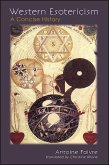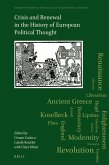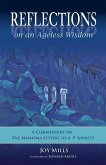"History often provides insight into the present. Consider the American South one hundred and fifty years ago, for example. There, human rights and economic servitude were compressed onto a single domain for black Americans. They became a means of production that could be bought and sold as a commodity. In many parts of the South, it was forbidden to teach blacks to read. Control by law of education, part of culture, was found necessary to subordinate human rights to economics. The domain of rights and economics thus also engulfed culture." --Joseph Weizenbaum, from the foreword Culture, politics, economics--these are the three core activities of society; the health of any society depends on a harmonious interaction among these three activities. And, according to Rudolf Steiner, this is impossible unless they are autonomous to the degree that they can each find their own essential character. In his foreword, Joseph Weizenbaum observes that those who framed the United States Constitution understood this--at least partially--when they developed the doctrine of a separate church and state. These essays cover a range of subjects--money, the division of labor, human motivation, and education. They offer refreshing insights into the nature of modern society as well as guidance for solving today's pressing social problems. Contents: * Foreword by Joseph Weizenbaum * Four Articles from the Newspaper The Social Future: * "The Threefold Social Organism, Democracy, and Socialism" * "The International Economy and the Threefold Social Order" * "Culture, Law, and Economics" * The Threefold Social Order and Social Trust: Capital and Credit" * Twenty Articles from the Newspaper The Threefold Social Order * "The Threefold Division of the Social Organism, a Necessity of the Age" * "International Aspects of the Threefold Social Order" * "Marxism and the Threefold Social Order" * "The Threefold Social Order and Educational Freedom" * "What Is Needed?" * "Ability for Work, Will to Work, and the Threefold Social Order" * "What Socialists Do Not See" * "Socialist Stumbling Blocks" * "What the 'New Spirit' Demands" * "Economic Profit and the Spirit of the Age" * "Cultivation of the Spirit and Economic Life" * "Law and Economics" * "Social Spirit and Socialist Superstition" * "The Pedagogical Basis of the Waldorf School" * "Fundamental Fallacy in Social Thought" * "The Roots of Social Life" * "The Basis of the Threefold Social Order" * "Real Enlightenment as the Basis of Social Thought" * "Longing for New Thoughts" * "Wanted: Insight!" * Appendix: * "An Appeal to the German Nation and to the Civilized World" * "The Way to Save the German Nation"








